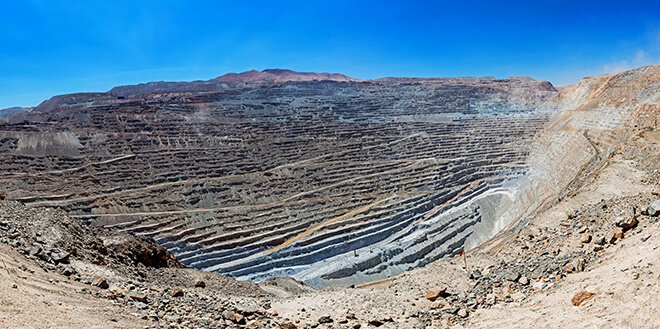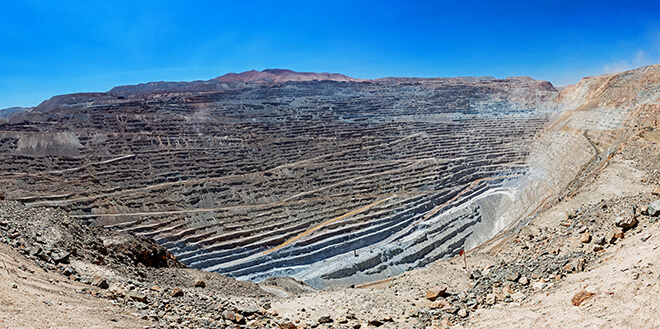When a disaster strikes, there is only one way to ensure that we have the critical materials and products we need here in the United States – through domestic manufacturing and production of all necessary components. For decades, this was an inconvenient and often ignored truth in a global economy, as public and private sector leaders embracing free trade and outsourcing.
Recent events have made this need for domestic production crystal clear. During COVID-19, we saw ventilator and Personal Protective Equipment (PPE) shortages. Inadequate semiconductor supply disrupted our entire economy. Russia’s invasion of Ukraine caused a spike in prices of nickel and other vital resources.
This is the perfect time for the United States to reshore its critical manufacturing. Thanks to American innovation, we have new manufacturing and processing methods that are environmentally sustainable and safe for workers without being cost prohibitive.
It is obvious there is no substitute for secure domestic supply chains, especially in strategic sectors. Yes, outsourcing can lower manufacturing costs. But, as we have seen, it comes with massive risks, including countries hoarding during crisis – and hostile nations like China and Russia reducing or eliminating exports of key elements.
Moreover, Russia’s invasion of Ukraine further underscores the importance of domestic supply chains for our national security. The United States and other Western allies have sent massive amounts of ammunition, rockets, and other weapons systems to arm Ukrainians. Now, we must restock these key military capabilities to maintain military readiness. This requires domestic manufacturing and domestic sources of the material needed for production.
Looking at the future of warfare – and what potential conflicts could look like, including in a possible North Korea crisis or Chinese invasion of Taiwan – we must recognize the essential role that manufacturing of weapons systems will play. From the end of the Cold War until Russia’s invasion of Ukraine, military conflicts predominantly involved irregular warfare, with modern militaries fighting insurgent groups. While these conflicts were expensive, they did not require the amount of ammunition, rockets, and weapons systems necessary for wars between nation-states.
I am proud to be part of this solution as a co-founder of Phoenix Tailings, a Massachusetts-based startup that has invented a new, proprietary method to process metals, including the 17 rare earth metals crucial to modern manufacturing, without producing direct carbon emissions or toxic byproducts.
The war in Ukraine is two armies engaged in large-scale operations, firing huge amounts of artillery and ammunition every day – one of them backed by US support. Tanks, airplanes, and naval vessels are being destroyed. They must be replaced for an army to keep fighting. A future conflict in North Korea or Taiwan will likely involve United States involvement, as well, either directly or indirectly through supplying allies with critical weapons and materials. This will require constant, robust military manufacturing to maintain force readiness.
The only way to guarantee that such capacity will exist and to ensure security here in the United States is through a trusted and resilient domestic supply chain.
This is the perfect time for the United States to reshore its critical manufacturing. Recent technological advances have solved many of the problems around environmental impacts and worker safety that drove much of the domestic manufacturing, mining and metal processing to other countries. Thanks to American innovation, we have new manufacturing and processing methods that are environmentally sustainable and safe for workers without being cost prohibitive.
For example, recently, there have been major advances in permanent magnet recycling and technologies that recover rare earths from non-traditional sources like coal fly ash and acid mine drainage. These innovations, combined with increased domestic mining, will fuel a dramatic increase in domestic rare earth concentrate production. However, this concentrate must be refined into metal form to be used in manufacturing. Until that gap is fixed, the US supply chain will still be totally dependent on Chinese refining facilities.
I am proud to be part of this solution as a co-founder of Phoenix Tailings, a Massachusetts-based startup that has invented a new, proprietary method to process metals, including the 17 rare earth metals crucial to modern manufacturing, without producing direct carbon emissions or toxic byproducts.
Traditionally, rare earths are processed into usable metals by exposing rare earth concentrates to extremely high temperatures and hazardous chemicals such as hydrofluoric acid and sodium pentoxide. This method produces 2,000 units of toxic waste for every unit of usable rare earths. China achieved a near-monopoly on processing because its government willingly accepted the massive environmental and public health harms. Through our processing and the domestic mining being conducted by companies like MP Materials and USA Rare Earths, the United States can break China’s monopoly on this market.
Reshoring critical manufacturing will ensure the United States military has the materials it needs to be ready for future conflict. It will also create export opportunities as allies expand their militaries to confront an increasingly aggressive Russia and China. Japan plans to expand defense spending to 2.7% of GDP, while Germany has set a target of 2%. Offering these countries a sustainable source of critical materials will demonstrate the United States’ geopolitical leadership while simultaneously creating jobs.
Policymakers have correctly recognized the need to reduce industrial reliance on foreign countries, especially adversarial countries, for critical manufacturing. American entrepreneurs are ready to meet that goal with modern, safe, and sustainable methods. This is the time for continued political leadership to meet the needs of our current moment.
Anthony Balladon is the Co-Founder & Vice President of Partnerships of Phoenix Tailings, a Massachusetts-based refiner of rare earth metals and other critical materials from mining waste.
(Photo by Diego Delso)




